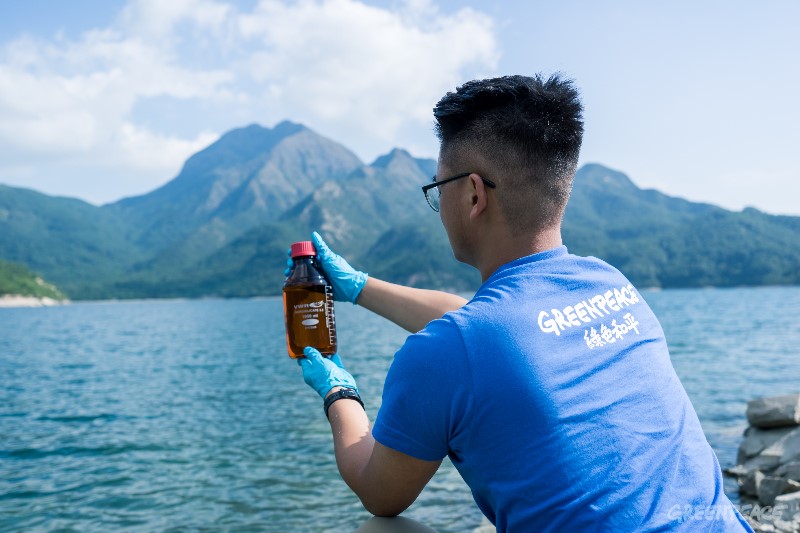The five biggest drinking water reservoirs in Hong Kong have been found to contain chemicals that could cause cancer and damage the human reproductive and hormone systems, according to new research by Greenpeace, which suggests that the water from the Dongjiang River in China could be a source of the chemicals.
In July, the environmental protection group took ten samples from the five reservoirs, including Plover Cove Reservoir in Tai Po, High Island Reservoir in Sai Kung, Tai Lam Chung Reservoir in Tuen Mun, Shek Pik Reservoir on Lantau Island and Shing Mun Reservoir in Sha Tin.
Plover Cove, High Island and Tai Lam Chung reservoirs, which hold water from Shenzhen’s Dongjiang River, contain a higher concentration of perfluorinated chemicals (PFCs) than the other two reservoirs, which collect rainwater and mountain stream water.

Plover Cove contained the highest levels of PFCs, between eight and 15 nanograms per litre. The lowest levels among the samples was in Shek Pik, between 1 and 1.15 nanograms per litre.
The group suspects that the Dongjiang River could be one of the sources of PFCs in Hong Kong’s drinking water, as there was no direct agricultural, industrial or household pollution near where the samples were collected.
Greenpeace senior campaigner Kate Lin Pui-yi said that PFCs enter the environment mainly through waste water from textile, electronic and outdoor industries’ manufacturing sites. Industrial areas close to the Dongjiang River could have contaminated the water source, and that water filtering facilities in Hong Kong could not completely remove PFCs.

Lin said that the chemicals could remain in the environment for more than 50 years, and they could be retained in human bodies from two to eight years after drinking water or eating seafood containing PFCs.
She added that the government was often slow to realise the threats of new kinds of chemical compounds, and urged it to set up regulatory measures to monitor the amount of PFCs in water, and also ban the use of PFCs.
“In Europe, especially Northern Europe, countries are pushing forward stricter regulations. We hope the government can set the standard as strictly as possible,” Lin said.
PFCs are widely used in outdoor consumer products, such as making weatherproof membranes, as they can repel both water and oil.
Lin urged outdoor product brands to completely abandon the use of PFCs, as substitutes of about the same cost have been used, and large brands should be able to cover the research cost of alternatives.
